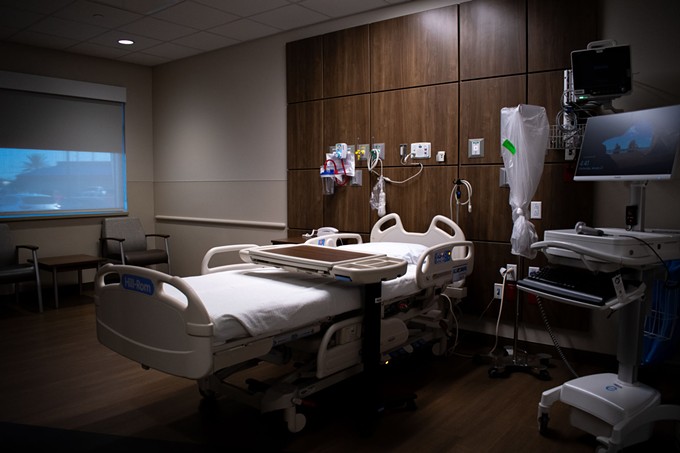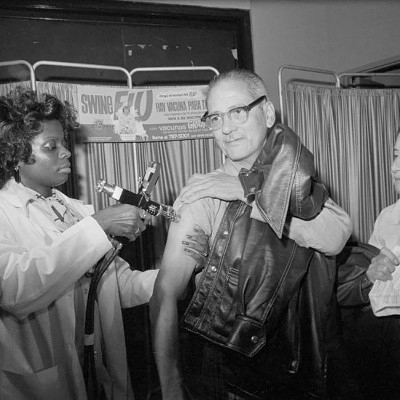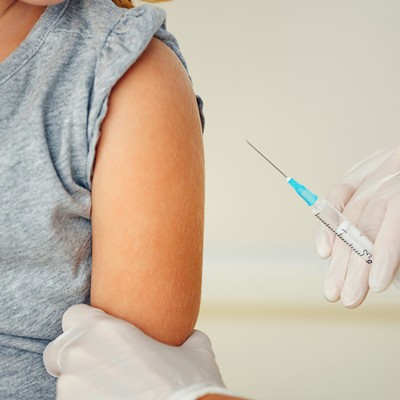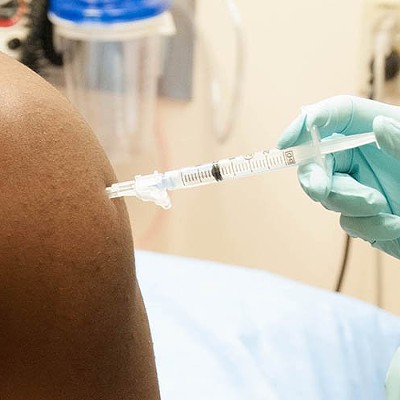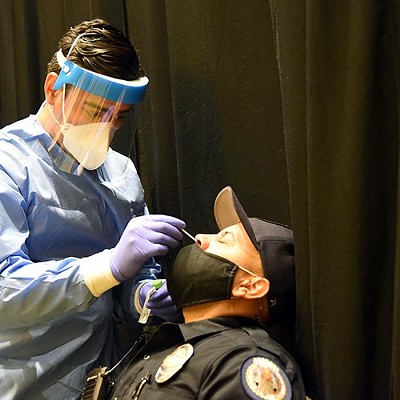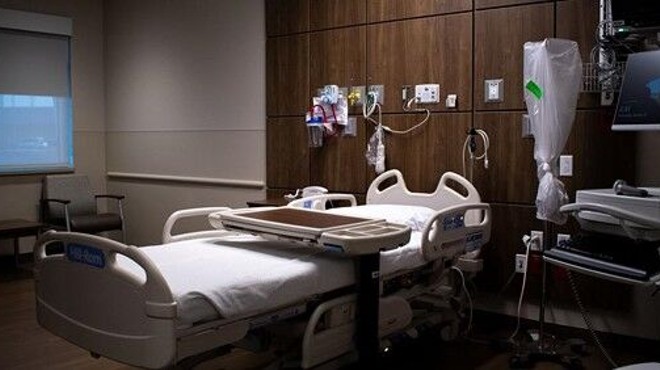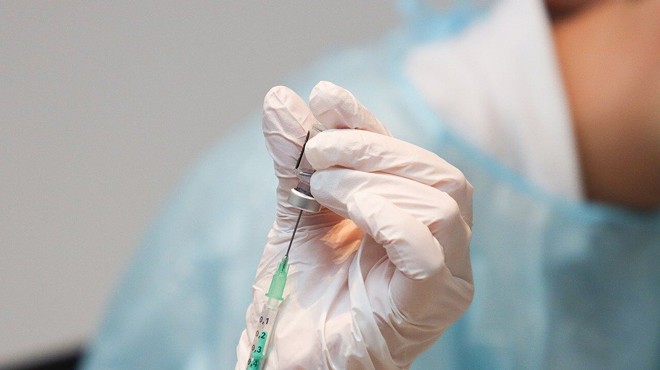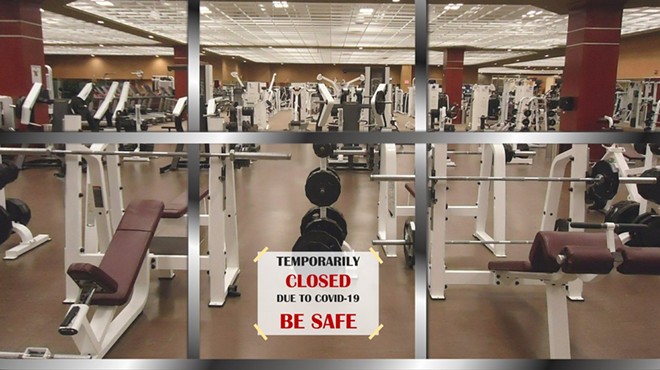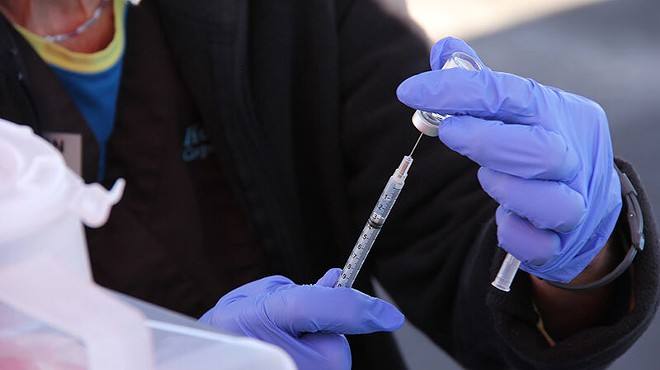Friday, March 27, 2020
Local Hospitals Update Strategies to Handle Coronavirus
With the Arizona Department of Health Services announcing the state’s COVID-19 transmission level to be “widespread,” sectors from private businesses to the state government are implementing new plans to combat the steadily growing pandemic.
These plans all focus on preventing an eventual hospital overload with more patients than beds, as has happened in other countries where the pandemic has quickly spread.
Dr. Cara Christ, ADHS director, said in a press briefing yesterday that Arizona’s COVID-19 outbreak could peak in April, with the greatest pressure on hospitals in May. But given the lack of data (the state lab has only run a few hundred tests; private labs have run more, but the number is unknown) means it’s impossible to say how many Arizonans are already infected with the virus.
COVID Act Now, a team of data scientists, engineers, and epidemiologists working to estimate the growth of infections across the country, projected that a potential overload could happen in Arizona as soon as late April if the state took little action to limit the spread of the virus. By contrast, three months of social distancing could still lead to an overload in mid-May.
Whatever the timeline, there’s a desperate need for more personal protective equipment to keep healthcare workers safe from infection. Earlier this week, Pima County Health Director Bob England warned that the county could not keep up the demand from local hospitals.
Pima County received a shipment of the state's portion of the federal National Strategic Stockpile, but it's not nearly enough, even when combined with the supplies that Pima County was able to find from outside sources, according to England.
England said when the county tried to respond to the requests of local hospitals, they discovered they could only deliver 9 percent of the surgical masks, 3 percent of the goggles and face shields, and 2 percent of the gloves that were requested, and only 1 percent of the gloves that are worn.
“It was just a pathetic drop in the bucket compared to the need,” England said.
The county is continuing to search for alternative solutions, such as working with local distilleries to create hand sanitizer, added England.
"We are pulling out every stop we can but we can't supply what doesn't physically exist and right now, all this stuff is backlogged all around the country," England said. "This is just another reason to, please, don't go seek healthcare right now if you don't need it. We need to preserve these supplies for the healthcare workers who take care of us when we need it."
Gov. Doug Ducey touted the release of 25 percent of the state's supply from the Strategic National Stockpile earlier in the week and said the state had requested more supplies.
Ducey issued an executive order on Thursday, March 26, in an effort to increase the number of hospital beds available for patients infected with COVID-19.
The "Increasing Hospital Capacity for COVID-19 Preparedness" order requires hospitals to activate their emergency plans, which were developed with guidance and funding from ADHS, in anticipation of a public health emergency. The executive order also requires hospitals to increase their bed capacity by 50 percent by April 24, reroute non-critical patients to other providers, accept patients up to 21 years old at pediatric hospitals and more.
“As public health officials, we have a responsibility to prepare for the worst-case scenario to plan for a pandemic,”
Christ said. “In Arizona, we are fortunate to have time to prepare, and we have a responsibility to bring additional hospital beds online, find needed supplies and identify critical equipment, including ventilators. We’re focused on working to make sure hospitals across the state build their capacity.”
This is the latest in a series of orders issued by Ducey, which also include an order requiring health insurance companies to expand telemedicine coverage for those services normally covered for an in-person visit so that patients can avoid trips to the doctor’s office.
Northwest Healthcare, which operates Northwest Medical Center, Oro Valley Hospital and multiple affiliated clinics and urgent cares, has implemented "virtual visits" for individuals with mild to moderate COVID-19 symptoms. Using an app, patients can speak with a healthcare provider to evaluate their symptoms. While COVID-19 cannot be diagnosed through a virtual visit, concerned individuals can have their questions answered and be referred for further testing. Perhaps most importantly, these virtual visits help reduce the spread of the virus through the community.
While Northwest Healthcare is currently seeing only limited use of their virtual visits, they expect this number to expand as patients become aware of this resource.
“Northwest Medical Center and Oro Valley Hospital continually work to be prepared for all types of infectious diseases such as measles, flu or new viruses like coronavirus,” said Veronica Apodaca, director of marketing for the Northwest Healthcare Network. “We have always had safety huddles in place for our employees, but have also added regular huddles with our physician partners, both employed and independent so that everyone stays informed and up to date in such a rapidly evolving situation.”
Banner Hospital hopes to soon launch drive-through appointments to expedite the fight against COVID-19, but that has also been stymied by a lack of equipment. Earlier this week, England said that while labs now have test kids for COVID-19, there’s a shortage of tools such as swabs and tubes to collect samples from patients.
"More testing is coming, but it's not quite as available as we want it to be," England said.
When testing starts, it won’t be open for just anyone to drive up. Those with virus symptoms can call Banner Health to determine if testing is appropriate. If they meet the CDC criteria for testing, they can attend a drive-through appointment where they will fill out paperwork and be tested for the virus all while remaining inside their vehicle.
Carondelet Health Network, headquartered in Tucson, is working with the Department of Public Health and CDC to respond to any potential local COVID-19 cases. They've created an online COVID-19 Assessment Tool, where those who believe they have the virus can work through a series of questions to understand the best course of action.
Carondelet also began visitor restrictions on March 19 to stop the virus' spread. However, certain exemptions include labor and delivery, end-of-life patients or others who are reviewed on a case-by-case basis.
Each of their employees has also been asked to follow a self-screening procedure to help protect patients.
Carondelet says their protocols and precautions are being updated in real-time as more information comes to light.
"Our hospitals are following guidance as directed by the governor’s executive order on elective surgeries, and in an effort to protect our patients, community, and healthcare workers, Carondelet St. Mary’s and St. Joseph’s Hospitals have put up tents where patients will be screened for potential COVID-19 symptoms and exposures prior to entering our facilities," said Keith Jones, communications manager for the Carondelet Health Network.
Tucson Medical Center is taking similar steps; as of March 19, visitors were no longer allowed to visit TMC patients. The hospital has also created a dedicated COVID-19 hotline at (520) 626-6016.
“Arizona is working day and night to ensure our hospitals are prepared while implementing measures to mitigate the spread of COVID-19 as much as possible,” Ducey said in a release detailing his recent executive orders. “Building additional capacity now, ahead of any increased demand, is the responsible thing to do.”
For more information on local hospitals’ COVID-19 responses, visit carondelet.org, bannerhealth.com, healthiertucson.com or tmcaz.com
These plans all focus on preventing an eventual hospital overload with more patients than beds, as has happened in other countries where the pandemic has quickly spread.
Dr. Cara Christ, ADHS director, said in a press briefing yesterday that Arizona’s COVID-19 outbreak could peak in April, with the greatest pressure on hospitals in May. But given the lack of data (the state lab has only run a few hundred tests; private labs have run more, but the number is unknown) means it’s impossible to say how many Arizonans are already infected with the virus.
COVID Act Now, a team of data scientists, engineers, and epidemiologists working to estimate the growth of infections across the country, projected that a potential overload could happen in Arizona as soon as late April if the state took little action to limit the spread of the virus. By contrast, three months of social distancing could still lead to an overload in mid-May.
Whatever the timeline, there’s a desperate need for more personal protective equipment to keep healthcare workers safe from infection. Earlier this week, Pima County Health Director Bob England warned that the county could not keep up the demand from local hospitals.
Pima County received a shipment of the state's portion of the federal National Strategic Stockpile, but it's not nearly enough, even when combined with the supplies that Pima County was able to find from outside sources, according to England.
England said when the county tried to respond to the requests of local hospitals, they discovered they could only deliver 9 percent of the surgical masks, 3 percent of the goggles and face shields, and 2 percent of the gloves that were requested, and only 1 percent of the gloves that are worn.
“It was just a pathetic drop in the bucket compared to the need,” England said.
The county is continuing to search for alternative solutions, such as working with local distilleries to create hand sanitizer, added England.
"We are pulling out every stop we can but we can't supply what doesn't physically exist and right now, all this stuff is backlogged all around the country," England said. "This is just another reason to, please, don't go seek healthcare right now if you don't need it. We need to preserve these supplies for the healthcare workers who take care of us when we need it."
Gov. Doug Ducey touted the release of 25 percent of the state's supply from the Strategic National Stockpile earlier in the week and said the state had requested more supplies.
Ducey issued an executive order on Thursday, March 26, in an effort to increase the number of hospital beds available for patients infected with COVID-19.
The "Increasing Hospital Capacity for COVID-19 Preparedness" order requires hospitals to activate their emergency plans, which were developed with guidance and funding from ADHS, in anticipation of a public health emergency. The executive order also requires hospitals to increase their bed capacity by 50 percent by April 24, reroute non-critical patients to other providers, accept patients up to 21 years old at pediatric hospitals and more.
“As public health officials, we have a responsibility to prepare for the worst-case scenario to plan for a pandemic,”
Christ said. “In Arizona, we are fortunate to have time to prepare, and we have a responsibility to bring additional hospital beds online, find needed supplies and identify critical equipment, including ventilators. We’re focused on working to make sure hospitals across the state build their capacity.”
This is the latest in a series of orders issued by Ducey, which also include an order requiring health insurance companies to expand telemedicine coverage for those services normally covered for an in-person visit so that patients can avoid trips to the doctor’s office.
Northwest Healthcare, which operates Northwest Medical Center, Oro Valley Hospital and multiple affiliated clinics and urgent cares, has implemented "virtual visits" for individuals with mild to moderate COVID-19 symptoms. Using an app, patients can speak with a healthcare provider to evaluate their symptoms. While COVID-19 cannot be diagnosed through a virtual visit, concerned individuals can have their questions answered and be referred for further testing. Perhaps most importantly, these virtual visits help reduce the spread of the virus through the community.
While Northwest Healthcare is currently seeing only limited use of their virtual visits, they expect this number to expand as patients become aware of this resource.
“Northwest Medical Center and Oro Valley Hospital continually work to be prepared for all types of infectious diseases such as measles, flu or new viruses like coronavirus,” said Veronica Apodaca, director of marketing for the Northwest Healthcare Network. “We have always had safety huddles in place for our employees, but have also added regular huddles with our physician partners, both employed and independent so that everyone stays informed and up to date in such a rapidly evolving situation.”
Banner Hospital hopes to soon launch drive-through appointments to expedite the fight against COVID-19, but that has also been stymied by a lack of equipment. Earlier this week, England said that while labs now have test kids for COVID-19, there’s a shortage of tools such as swabs and tubes to collect samples from patients.
"More testing is coming, but it's not quite as available as we want it to be," England said.
When testing starts, it won’t be open for just anyone to drive up. Those with virus symptoms can call Banner Health to determine if testing is appropriate. If they meet the CDC criteria for testing, they can attend a drive-through appointment where they will fill out paperwork and be tested for the virus all while remaining inside their vehicle.
Carondelet Health Network, headquartered in Tucson, is working with the Department of Public Health and CDC to respond to any potential local COVID-19 cases. They've created an online COVID-19 Assessment Tool, where those who believe they have the virus can work through a series of questions to understand the best course of action.
Carondelet also began visitor restrictions on March 19 to stop the virus' spread. However, certain exemptions include labor and delivery, end-of-life patients or others who are reviewed on a case-by-case basis.
Each of their employees has also been asked to follow a self-screening procedure to help protect patients.
Carondelet says their protocols and precautions are being updated in real-time as more information comes to light.
"Our hospitals are following guidance as directed by the governor’s executive order on elective surgeries, and in an effort to protect our patients, community, and healthcare workers, Carondelet St. Mary’s and St. Joseph’s Hospitals have put up tents where patients will be screened for potential COVID-19 symptoms and exposures prior to entering our facilities," said Keith Jones, communications manager for the Carondelet Health Network.
Tucson Medical Center is taking similar steps; as of March 19, visitors were no longer allowed to visit TMC patients. The hospital has also created a dedicated COVID-19 hotline at (520) 626-6016.
“Arizona is working day and night to ensure our hospitals are prepared while implementing measures to mitigate the spread of COVID-19 as much as possible,” Ducey said in a release detailing his recent executive orders. “Building additional capacity now, ahead of any increased demand, is the responsible thing to do.”
For more information on local hospitals’ COVID-19 responses, visit carondelet.org, bannerhealth.com, healthiertucson.com or tmcaz.com
Tags: covid19 , coronavirus , hospital , strategies , local , health , Image


